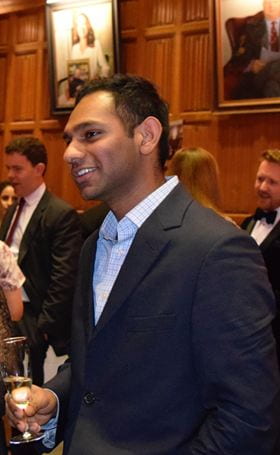“The opportunity to have a professional writer review my work was incredibly helpful. The advice helped me achieve the highest cluster of marks I’ve received during my time at university; I wished I’d known about it sooner!”
1. What is a Royal Literary Fund Writing Fellow? Tell me a little about your role.
A Royal Literary Fund Writing Fellow is a professional writer who, through individual coaching, works with Higher Education students to improve their writing. Occasionally we work with staff too, and we can cover many different types of writing, not just academic essays – but essentially my role is to help students on a one-to-one basis with their written submissions. As well as making practical suggestions, I try to share some general tips or approaches that the students themselves can adopt in the future. It’s not proofreading but an attempt to work through the particular writing issues faced by an individual student.
There are four Fellows at Bristol and I started in October, working two days a week (the rest of the time I’m writing!). I’m really enjoying it and though my time as a Fellow concludes in May, I will be back at the start of the next academic year – by which point, I’m hoping the world might look a little more normal…
You can see an RLF Writing Fellow by going to bristol.ac.uk/bristol-futures/royal-literary-fellows/ and sending one of us an email. We’ll then reply with a link that allows you to book your first session at a time when it’s convenient for you.
2. Why were these roles created?
I think there was a feeling that students might sometimes value additional help with their written work, and that the one thing professional writers know a bit about is writing! The idea was that authors could be placed on campuses throughout the UK to provide some additional one-on-one tuition. They’re independent of the host university, and not all Writing Fellows are academics – I happen to have a Masters and have lectured at another university, but I very rarely have specialised insight into my students’ subject areas. However, I’ve been writing professionally for almost thirty years, so I hope I know a little about planning, structure and, most importantly, the nitty-gritty of clear written English.
3. How do you work with students? What sort of issues can they seek help on?
Sometimes a student will come to me who’s been seeing the same criticism repeated in their essay feedback and we’ll talk about how they might be able to improve in that area. Sometimes they’re already doing well but they want to see if they can find a way of nudging their marks up a little. Or perhaps they feel they’re struggling quite badly – what is an essay anyway, and what is academic writing?!? I hope I’m sympathetic on that point: I was never formally taught to write essays at school or polytechnic (perhaps I should explain: a long time ago, there were things called polytechnics that functioned alongside universities…).
The Study Skills department is the first port of call if a student’s major issue revolves around dyslexia or English as a Second Language. But generally, if someone has a concern with their writing while at university, or thinks they’re capable of better marks and that somehow their written work is letting them down, then hopefully that’s where myself or one of the other Fellows can help. It’s free, it’s confidential and, as Bob Hoskins used to say in adverts for BT, it’s good to talk.
4. Do you have to be an English Literature student/undergraduate etc? Who can access the service?
We’re here for everyone! I’ve actually spoken to very few English Literature students so far, but I have seen people studying Criminology, Anthropology, Public Health, Psychology, Economics, History, you name it. I’ve even seen someone studying Medicine which, because my wife is a GP, was great fun. I’ve spoken to almost as many people who are working towards their Masters or PhDs as I have undergraduates, so I think the scheme casts the net pretty wide. In fact, the only work we’re not allowed to take a look at is Creative Writing, which I completely understand, but does feel a bit odd, as that’s what I used to lecture in.
5. Can students still access this support virtually?

Absolutely. In pre-pandemic times, students would see us in person, but for obvious reasons, everything is done online at the moment. It’s a shame I’m not on campus – I was due to be based at Beacon House – and I’m sure I’m as tired of video technology as anyone, but the students I’ve met have been very understanding.
We use a platform called Whereby, which is a bit like Zoom, but it’s more secure and (I think) easier to use. And I’ve had very few technical issues so far. It can never fully replace meeting students in person, but I suppose it can have its advantages, especially as we get more and more used to doing these things from the comfort of our homes. I don’t live in Bristol, so at least it means my commute to work is short…
6. What’s your top writing tip for students?
Writing is editing. It really is as simple as that. Of course, research is vital, and of course you have to get the first draft done. But that’s the start of the process, not the end. I’ve tried to take this view when I’ve written novels or soap opera scripts, and it’s advice I followed when I worked on my Masters. I’m not saying all writing problems disappear if you give yourself enough time to revise and polish your work, but it’ll certainly help.
7. What’s your favourite part of the writing process?
Finishing! Partly because I know how important editing is, as I just said, and partly because I do find writing that first draft quite difficult. That’s not to say I dislike writing – it’s the only ‘job’ I’ve ever wanted – and of course there are occasional moments of sublime bliss when the words just seem to fall out of you. But I like having written. It’s as if you’ve been carving a block of marble and finally you see the shape you used only to have in your mind. It’s not finished, but at least you have something that looks a bit like a person, or a horse, or a hedgehog. It’s where the real fun starts, I think.
8. Tell us something your students might be surprised to learn about you (e.g. a fun/unusual fact if you have one 🙂 )
It might not be a big surprise, as it’s part of my full RLF bio, but I have a black belt in kickboxing. I’ve been attending classes twice a week for over a decade. Outside of the ring, and possibly even in it, I’m about as threatening as a rice pudding, but I like messing around with the archetype of the middle-aged glasses-wearing nerd who hates sport! Also, you meet a bunch of fascinating people who generally don’t waste time worrying about split infinitives and possessive apostrophes…







